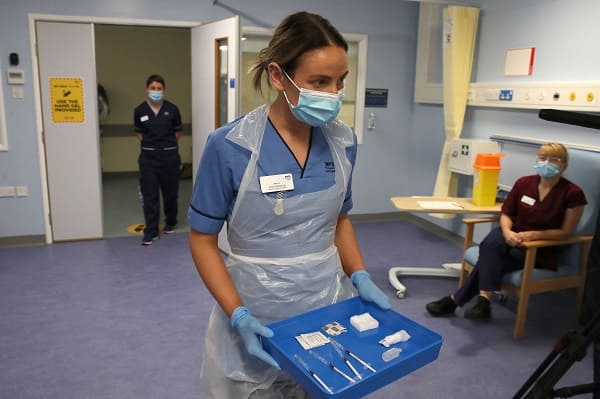36% of Brits seeking access to healthcare this month say contacting their GP practice was ‘difficult’ or ‘very difficult’, according to the latest survey from the Office for National Statistics (ONS), compiled between 4-14 May. 15% of patients said it took them two or more days to contact their surgery and 10% said they didn’t manage to make contact at all.
The bad news concerning local GP surgeries doesn’t end there. Around 22% of people who tried to contact their surgery in the first weeks of May described their overall experience as ‘very or fairly poor’. Leaving many patients looking at alternative solutions including private healthcare such as a private GP Manchester.
Commenting on these results, a leading health testing expert says reduced NHS funding in real terms is having an impact. He is calling for the Government to speed up the introduction of its blueprint plans for community pharmacies, enabling them to prescribe certain medications and increase their blood pressure and contraception services.
Dr Avinash Hari Narayanan (MBChB), Clinical Lead at London Medical Laboratory, says: ‘The latest ONS study has examined opinions around people’s access to their local surgery and their overall happiness with GP services – and the results are concerning. 14% of people had a “fairly poor” experience with their GP practice and 7% reported a “very poor” experience. Clearly, that is not sustainable for both patients and healthcare providers. We know that many practices have been struggling to catch up in the aftermath of the Covid pandemic, due to increasing service demands and diminishing resources. This set of results shows how much of a burden our local surgeries are still under and how, ultimately, this is passed on to patients.
‘It’s a situation likely to have been exacerbated by the fact that the Government’s estimated health expenditure of £230bn last year represents a 6.2% drop in real terms, according to further new data released this month by the ONS. This was the first annual real-term decline in health spending since current records began in 1998.
‘With all this in mind, the promised improvements in community pharmacy services can’t come soon enough. They will ease the burden on local GPs and help people regain access to essential health services and information. We may be at a critical point, especially for primary care, where significant structural changes in healthcare provision may need to be brought into reality. Empowering community pharmacy services could be part of the solution.
‘Tellingly, expenditure on healthcare financed through non-Government schemes, such as private treatments, increased by 9.5% last year over 2021. It is now estimated at approximately £52bn. Private (out-of-pocket) healthcare expenditure increased by 10.4%, while voluntary health insurance schemes spending grew by 4.3%. Although this may look to some like “stealth privatisation” of the NHS, these figures could also represent a growing public appetite for increased choice. This, in turn, could take some of the pressure off essential NHS services.
‘Increased funding may help ease the NHS’ problems but, ultimately, significant structural changes are needed to meet changing demands. That’s why the Government’s ambition for empowering community pharmacy teams should be welcomed. Local pharmacies should be encouraged to increase services such as blood pressure measurement, contraception advice and, of course, prescribing drugs including antibiotics for certain conditions. There should be a greater focus on blood tests as a quick and effective way of spotting previously unsuspected health issues. All this can be achieved with appropriate training and regulation, ensuring clinical safety.’






Leave a Comment